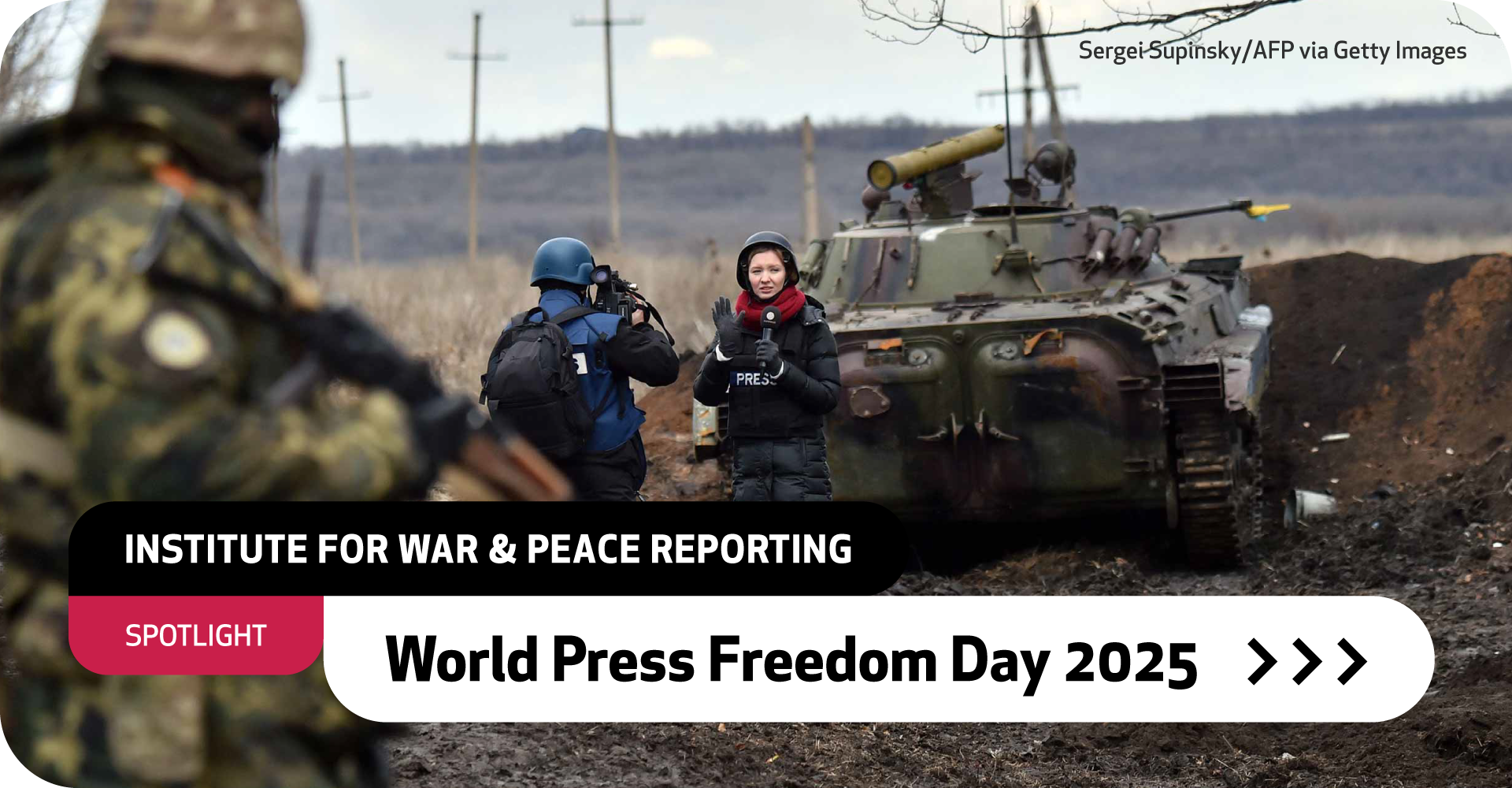“This is a Critical Time for Iraq”
Co-founder of Jummar media explains why young Iraqis urgently need an information space where they can learn, contribute and share perspectives.
In October 2019, huge protests began in Iraq. Known as the Tishreen movement, young people flocked to public spaces demanding change. The protests were on massive scale and had a real impact on a political as well as a social level.
But in Iraq, no one covered it. The mainstream media in Iraq shunned these young activists, who began trying to create their own platforms to communicate, largely on social media.
"There are still huge challenges facing independent media in Iraq."
There was clearly a lack of any sort of home-grown media or information space they could access where they felt like they could communicate and be heard.
So in 2021, I and two colleagues - Omar Al-Jaffal and Haneen Naamneh- started having conversations about what such an outlet would look like.
We wanted to create a space for accurate, professional journalism, where young Iraqis could tell their stories and also develop their journalism skills.
I'm Iraqi, although I've lived in the UK now for over 30 years.
I did my PhD on Iraqi media, exploring a complicated and often restrictive media space. Pre-2003, media was very much a propaganda tool of the state. As part of the democratisation experiment in Iraq, laws were passed to support pluralism in the Iraqi media. But although a public broadcaster and a regulatory body are written into the Iraqi constitution, this didn't really reflect the needs of the Iraqi system and people. Iraq now has multiple media platforms: online, television, print, radio. But there's no regulation around ownership, receiving money from public parties or types of content.
So we now have a media landscape that's dominated by politicians, parties, oligarchs, or businessmen who have political aspirations or close ties to the political class. Some of the media is also geopolitically affiliated to actors in the region and elsewhere with their own interest in power.
In the years following the Tishreen protests, the situation deteriorated. Those in power felt threatened by the voices calling for change.
"No-one else in the Iraqi context is doing anything like this."
The Iraqi authorities began to clamp down on civil society and media. They started using bureaucratic tactics, like making registration expensive and difficult; the kind of authoritarian playbook type measures that we see in other contexts.
Then there was a morality crackdown, which began with the launch of an online platform where Iraqis were encouraged to tell the government if anyone was writing anything on social media that might be deemed to be immoral.
This subsequently led to the banning of the word ‘gender’ in Iraq as well as other related words, like ‘women's empowerment’ in August 2023.
We registered Jummar in Germany in November 2021, with a view to then registering in Iraq the following year. But we’ve now paused this; if we'd been registered in Iraq, we wouldn't have been able to carry on reporting on some of the issues that we do.
While we operate as a hybrid media organisation – the organisation is registered in Germany with team based across Iraq and the region - we are very much an Iraqi platform and have taken a very Iraqi approach to what we're doing, from our design - the logo for Jummar is inspired by old Baghdad architecture, the name Jummar is the heart of the palm tree in Iraqi dialect - through to the language that we use in our Arabic content.
The vast majority of our audience are inside Iraq, with the rest made up of Iraqis in the diaspora and some policymakers, academics, and media organisations across the region and worldwide. We clearly declare that our focus is Iraq and the Iraqis whether inside or outside Iraq; we are not regional nor try to cover regional issues. That's why I think we see more and more dialogue and interaction on our platforms from our primary audience, hence young Iraqis looking for space like Jummar to learn, contribute, discuss and share their perspectives.
Most of the feedback we get is from people in Iraq, and it’s really positive. They say to us, ‘no-one else in the Iraqi context is doing anything like this.’
We're doing a lot of stuff on minority rights and people with disabilities at the moment, and we are getting such positive feedback, from civil society, lawyers, members of parliament.
We sometimes get push back, especially when we produce stories on women’s or LGBT+ rights, for example. We'll lose followers when we publish some of that content; but we’ll gain followers too.
This is a critical time for Iraq. The country has fallen off the priority list for many international actors. It's classified as middle income now by the World Bank, which means that a lot of institutional organisations don't see Iraq as a priority for foreign aid and development.
But this does not reflect the reality on the ground. There are still huge challenges facing independent media in Iraq and we urgently need direct support, core funding and mentoring for young emerging creatives, writers, artists, musicians, designers, in order that they can express their desire for change and action.
There's a lot of conversations happening at the moment across the international media community about the importance of public interest journalism. We need to start listening to Iraqi voices and find a way to get Iraq back in the narrative, back in dialogue, and part of these global conversations.

